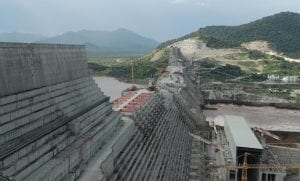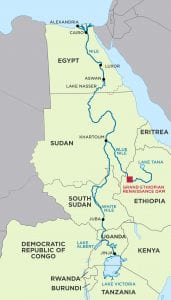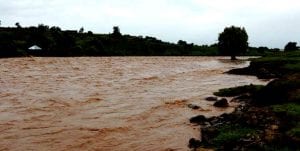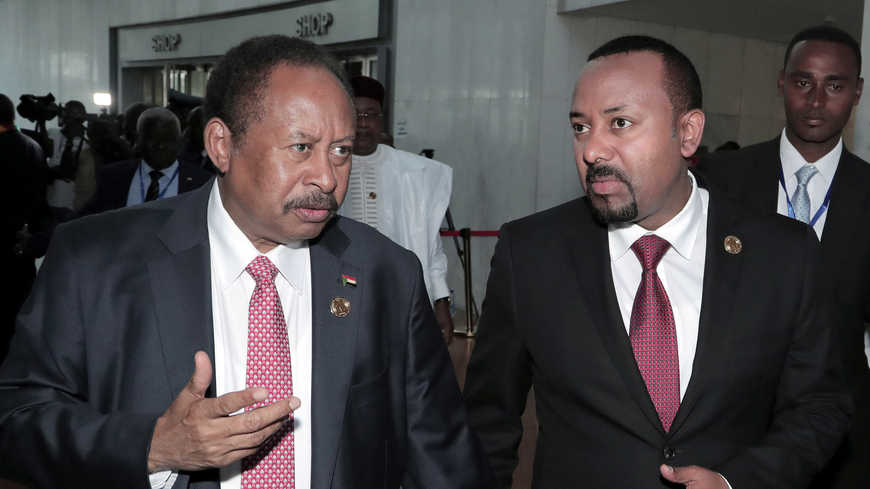Dam negotiations unlikely to succeed anytime soon
2 December 2020
Tripartite talks on the Grand Ethiopia Renaissance Dam (GERD) appear permanently stalled for 2020, affecting Sudan’s other dam operations as decade-long negotiations continue to hit stumbling blocks.
For the first time, Sudan refused to attend 21 November talks with Ethiopia and Egypt over Africa’s most ambitious hydro-electric project. Water and Irrigation Minister Yasser Abbas said in a statement that the approach to reach a tripartite agreement to fill and operate Ethiopia’s dam had not yielded results and the African Union should do more to “facilitate the negotiation and bridge the gap between the three parties.”

A lot of talk about nothing
Sudan’s latest move did not come as a surprise, as it declared before that it will not engage in the talks unless the negotiation process was changed. Despite the boycott, the Sudanese team took part in the ministerial meeting and then stated that nothing has changed.
Sudan participated since the meeting gave the countries one week to discuss and come up with an agreed negotiation modality with clearly identified work-plan and roles for experts and observers, Sudanese Chief GERD Negotiator, Dr Salih Hamad told Ayin. “This is what Sudan asked for after reiterating our position to not negotiate the same way as the last round of August 2020,” Hamad added.
The GERD negotiations are no longer technical, Hamad said, but are now mired in politics that need political will from the three countries. The last round of talks in early November, he said, did not delve into the technical issues related to the GERD filling and operation but assumed a more political matter instead.
Little progress has, so far, been achieved under the African Union (AU) process, Hamad says. “The first round came out with more understanding of the outstanding issues already identified in the negotiation round last June. In the second round under the AU, the gap among the three countries widened because of the negotiation modality that was initially rejected by Sudan.” Previous agreed-upon positions, such as an official drought definition came up for debate once more, says political analyst Mohamed Abdul-Aziz.
“With the current rate of progress on the negotiated issues, I am in doubt to reach a conclusion before the end of this year. But let us be optimistic,” Sudan’s Chief Negotiator told Ayin.

Internal disputes, regional disputes
Both Egypt and Ethiopia are contending with internal disagreements, making it difficult to reach a dam settlement, Abdul-Aziz said. In many ways, GERD has also become a political tool for these internal wrangles. “GERD is a strategic issue for both of these countries that can be useful in steering public opinions and [a way to] distract people’s attention from other internal problems.”
But not all disputes are internal.
Several Ethiopian officials expressed their concerns on several occasions that Sudan might be siding with Egypt. “Sudan is becoming even more assertive than Egypt these days in the dam negotiations soon after the Transitional Military Council travelled to Cairo,” says former Ethiopian Foreign Affairs Ministry expert and analyst Chalachew Tadesse. “Joint Military training – with Egypt and Sudan, it is a message to Ethiopia,” he told Ayin. The training exercise follows the Egyptian army’s chief of staff, Lt. Gen. Mohamed Farid and a high-ranking delegation visit to Sudan on 31 October to discuss security cooperation between the two countries.
Sudan’s Chief Negotiator, however, denies any Egyptian alliance against Ethiopia vis-à-vis the negotiations. “Egypt has its own interest and opinions on the AU-led process. But for Sudan, we negotiate in good faith and believe in the international laws that govern transboundary rivers — hopefully, we can reach a win-win agreement.”
Whether Ethiopia’s internal conflict in the northern region will affect GERD construction plans is difficult to predict. An official statement by Ethiopia assured its citizens that GERD construction continues during this conflict. As long as the rebel Tigray People’s Liberation Front (TPLF) forces do not wage a massive counter-offensive and the Ethiopian government maintain tight control of the Sudan-Ethiopia border areas, Tadesse said, there appears little chance the GERD’s construction and regional discussions will be curtailed.

Future Predictions
For Sudan, an agreement regarding the filling operation is essential as the management of all dams located on the Blue Nile are directly impacted, Prime Minister Abdalla Hamdok said recently during a national meeting regarding the dam.
GERD can also contribute to floods management, and this year’s extreme flooding of the Blue Nile could have been mitigated if the initial filling took place at the same time as the flow increases.
“Sudan is the one that’s exposed to direct harm if an agreement isn’t reached, as hundreds of thousands are living by the Nile. And the lake of Al Roseires Dam, for example, is only 15 kilometres from the GERD”, Abdul-Aziz says, adding that water shortages when the initial filling happened a few months ago represent an example for this impact.
Reaching an understanding over the filling cycles and operations of the GERD is crucial for Sudan, he said. If an understanding is not reached and Ethiopia continues construction and filling without an agreement, he says, “Sudanese people will suffer considerably.”


